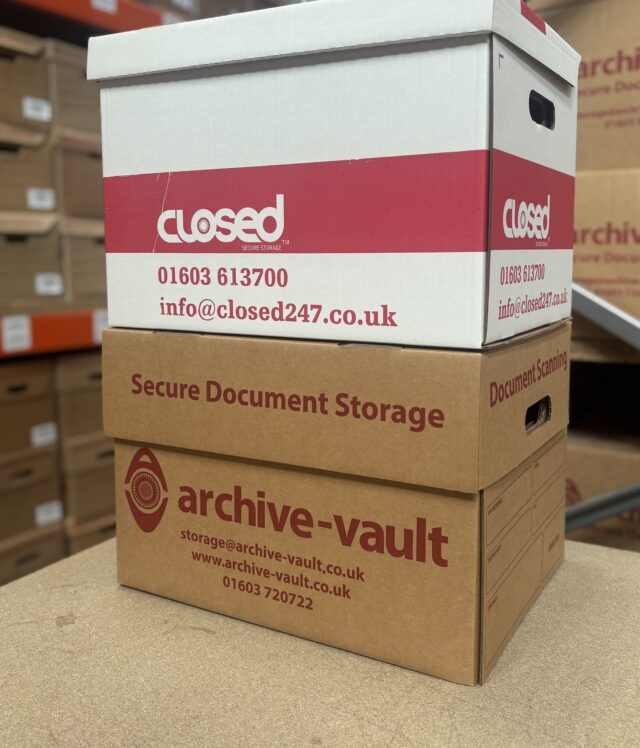Information governance is about more than just records management and meeting compliance requirements. Read on to find out what it means and how it can benefit your business.
In today’s world of increasingly stringent data protection and records management, every business needs a strong information governance policy. With the right framework, you can keep your business compliant with the latest regulations, but also support its decision-making for continued growth.
But what exactly is information governance, and how can it help your business to succeed?
What is information governance?
A useful information governance definition is given by InfoGov Basics. According to their website, information security governance is: “The effective use and management of an organisation’s information assets to derive maximum value while minimising information-related risk. It encompasses all of the rules, regulations, legislation, standards and policies an organisation needs to comply with when it creates, shares and uses information.”
Essentially, information governance is a framework of processes and procedures that governs how an organisation uses and stores information. This helps a business to maintain compliance while also using the information to benefit the wider organisation.
Is information governance the same as data protection?
No, it isn’t. Data protection is centred on securing data from external attackers, such as hackers, or insiders with bad intentions. It also includes obligations from legislation such as the Data Protection Act.
Information governance has a wider scope. It still includes legal and regulatory obligations but it also finds ways to reduce risk while providing value to the business through the information it manages.
How many key areas make up information governance?
A business needs to adopt the information governance principle that content and information is an asset with a purpose. The business therefore has an obligation to manage that information correctly, above and beyond merely complying with regulatory, audit, legal and discovery requests.
Information governance principles therefore apply to these key areas:
- Content and records management
- Classification and auto-classification
- Imaging and archiving
- Recovery and access
Why does my business need it?
Businesses need strong records management and information governance to ensure that they continue to comply with all relevant regulation, data privacy laws and other legal obligations. Fail to comply, and you could damage your reputation and put your business at risk of fines or prosecution.
Information governance can also unlock the true value of a business’ information. By clearly understanding the information you hold, better decisions can be made about what is and isn’t of value, the systems and procedures that are no longer needed and the gaps that need to be filled. This can then be used to drive development, improve customer experience and support your organisation’s ability to adapt and respond to change.
What are the benefits?
The benefits of information governance range from cost savings and improved productivity to better IT and data storage. Here are our top 10:
1. Find the right data at the right time: Most businesses have a lot of data coming in, but ensuring that the right people have the right data, and at the right time and place, is a big challenge. The policies and procedures of an information governance framework reduce this hurdle by controlling availability, accessibility and compliance.
2. Reduce risk and improve regulatory compliance: An information governance policy ensures access is only provided to those who need it. This reduces the risk of sensitive or confidential information being seen by those without the right permissions. An information governance framework also ensures that information is kept up to date and archived correctly, thanks to its classification and tagging processes. With such a framework in place, you can quickly find and retrieve information for an audit or any regulatory or legal needs.
3. Improve decision-making: Being able to analyse and interpret trends using your data enables far better decision-making. By defining the information you have, and how and when that data is accessed, information governance can help your business to succeed.
4. Take customer service to the next level: Today’s customers expect more from the businesses they engage with. That means staff need to be able to access relevant information quickly. Information governance is the standard by which all information is stored, categorised and accessed, and it enables your team to respond to your customers without unnecessary delay.
5. Reduce the cost of potential discovery or litigation: The record management of an information governance framework allows businesses to not only decide which information needs to be kept, but also what needs to be accessed easily, by whom and when. This drops discovery costs and reduces the size of any legal fees.
6. Improve the value of IT: IT projects fail as often as they succeed, and even if a new IT system is successfully rolled out, not all business users will know its benefits. An information governance policy will help a business to understand the value of its IT assets and develop a strategic framework for implementing new IT systems.
7. Remove unnecessary information: Most businesses don’t know the content of the information they hold, and are therefore unable to turn it into valuable, usable data. By destroying information that is unnecessary or useless, businesses with strong information governance can focus on what is of value.
8. Improve collaboration: The more that staff and business partners collaborate, the more successful a business is. Being able to share the right information with the right people helps the business to maximise its potential while minimising risk.
9. Reduce storage costs and administration: Information security governance highlights data that is of no value, as well as systems and applications that are no longer needed. By removing these, you can save your business money on both storage costs and administration.
10. Implement consistent information policies: Record management and information policies can often be applied piecemeal, leading to a lack of consistency. However, an information governance framework creates a centralised information management policy that can be rolled out across the business. This ensures that all information management meets regulatory requirements while also serving the needs of the business.
Contact us about record management for your business
Do you want to securely organise, categorise, store and retrieve your business information? Then get in touch with us today! Contact us by calling 01603 720722 or emailing info@archive-vault.co.uk and we will help you to get started.











